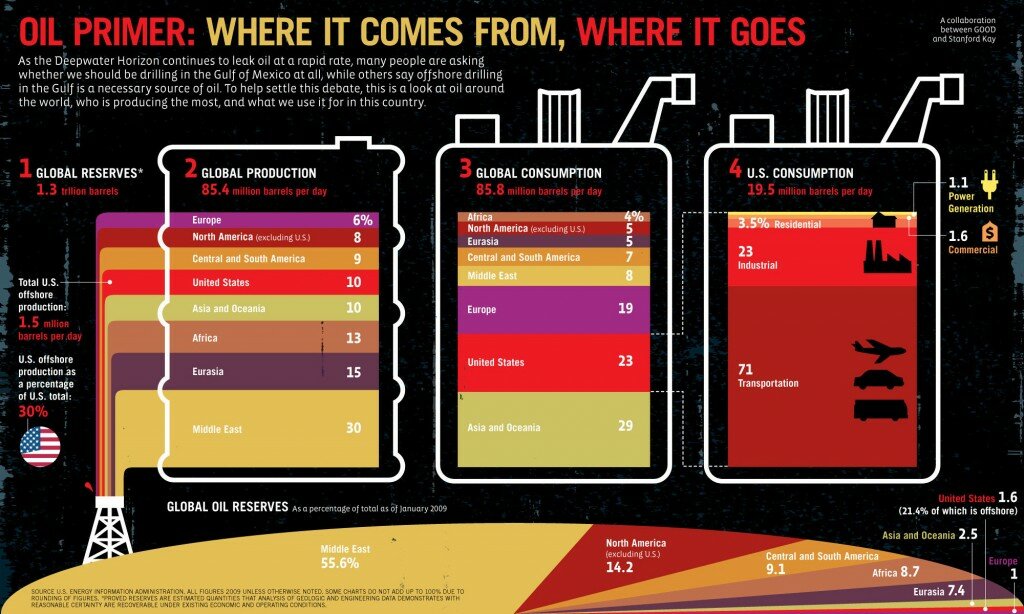Posted By: Amanda Gillen
groSolar CEO, Jeff Wolfe, will be presenting The Climate Project slideshow on public night of Solar Power International in October. The presentation will be held on Wednesday, October 13th from 6:00-7:30PM during Solar Power International in Los Angeles.
Mark your calendars! More details to come…
Posted By: Amanda Gillen
Well, this is just depressing. The Global Footprint Network has calculated “Earth Overshoot Day”:
Every year, Global Footprint Network calculates nature’s supply in the form of biocapacity, the amount of resources the planet generates, and compares that to human demand: the amount it takes to produce all the living resources we consume and absorb our carbon dioxide emissions. Earth Overshoot Day, a concept devised by U.K.-based new economics foundation, marks the day when demand on ecological services begins to exceed the renewable supply.
This year, Earth Overshoot Day was Saturday, August 21. This means that we are now living off of credit from the earth and building upon our past debts. The Global Footprint Network expects that this year we will use 150% of the resources the earth can generate this year.
Not only is this unsustainable but we are setting ourselves up for a disaster. Why don’t we do something about it?
Posted By: Amanda Gillen
For many years, Russia has denied that climate change existed going so far as to blame the climate change idea on an international media conspiracy. However, the recent heat wave and wildfires have caused something of a change of heart. As Russian President Dmitri Medvedev stated on July 30th,
“What’s happening with the planet’s climate right now needs to be a wake-up call to all of us, meaning all heads of state, all heads of social orgnaizations, in order to take a more energetic approach to countering the global changes to the climate.”
Read the full article from Time – it’s worth the few minutes.
Posted By: Jeff Wolfe
There is no denying it – what happened last December in Copenhagen was disappointing. But although only a weak, non-binding agreement emerged from COP 15, the struggle for climate legislation is by no means over. In fact, as we watch more than 200,000 gallons of oil spill each day into the Gulf of Mexico, we have more proof than ever that we must continue the struggle.
Preparations and negotiations are well underway for COP16, where the Gulf spill must be used as a worldwide example to show how action on climate protection through legislation and treaty can create a pathway to the benefits of reduced fossil fuel use. We must use the spill as momentum to agree to an outline this year of what will become a binding international treaty to be concluded and signed at COP17 in 2011, in South Africa.
Since more than 40,000 people from 194 countries and 832 NGOs attended COP15 in Copenhagen, and similar numbers are expected for COP16 in Cancún, it is clear that climate legislation is a worldwide priority.
Free Market Solutions Aren’t Enough
Why is there such a push for government legislation instead of privately funded action in the free market? We have seen the incredibly strong efforts of some businesses that are working to combat climate change through renewable energy, recycling technologies, energy efficient appliances and more. Why is this not enough?
One problem with the “free market” system in the U.S. is that it only provides incentives for individual companies to maximize profits. Relying on these often legally-defined short-term profits restricts companies from taking action against many areas of climate change unless government regulation requires it. There are many important initiatives that cannot be driven through profit motive, since the profit (either to businesses or consumers) is too far in the future.
The nature of the “free market” is such that innovation in business will only provide solutions for which there are direct financial incentives. These incentives are binding governmental legislation. With legislation, individual businesses could provide better safety for drilling and transport, and stronger prevention measures for pipeline spills. With the right incentives, they could provide the necessary push to drastically reduce our use of oil, which is the only real way to greatly reduce the likelihood of future spills.
Though the Gulf spill is attracting lots of media attention at the moment, it is not the only oil-related disaster, or even the largest. Since 1969, spills in Nigeria have dumped as much oil every single year as what was spilled in the 1989 Exxon Valdez spill, causing extreme environmental and social upheaval. Using climate legislation as a vehicle to assist moving the world off oil is crucial for Nigeria and other underdeveloped countries whose individuals will suffer the most from climate change and environmental issues, and yet do the least to cause them and have the fewest resources to pay for them.
We need a legally binding treaty that will force oil companies to have working spill clean-up and prevention technologies and other companies to look for ways to drastically reduce our dependence on oil. And we must start here in America, where public support is high as we watch the damages caused by the Gulf spill.
The Gulf spill provides a clear example of privatized profit and socialized risk: there is much more private money to be made in drilling for oil than in preventing or even cleaning up spills, meaning that no truly effective technology has been developed to stop and clean up the spill. (While BP may blame the failure of every single planned solution and failsafe on accidents, we know that the energy and money that went into spill prevention and clean up technologies was significantly less than what went into new drilling technologies.)
The spill is disastrous to the local ecology and economy, including the enormous fishing and tourism industries along the coast, which have completely shut down, putting thousands of people out of work. But while we work to help the suffering environment and industry, we must also use the force of public opinion as a push towards legislation. Climate legislation would put a price on carbon, helping America and the world lessen its reliance on oil and reducing the number of future oil-related disasters. It might also provide incentive for the private sector to create better clean-up and prevention technologies in case those disasters do occur.
Recent polls show American public opinion strongly in favor of decreasing our reliance on oil and fighting climate change. Yet, without a financial signal that something must be done, changing the practices of most American businesses is very difficult. While the American public does not necessarily follow their pocketbook, price signals help do shift business actions. Climate legislation, with a price on carbon, will provide the signal, the financial incentive, and the culture-driving motivation.
We cannot see the end of our reliance on oil as an impossible feat. We must see it as possible and necessary, but understand that we need government regulation to assist the free markets by providing proper market signals. It is not too late to end our dependence on oil and reverse climate change, but we must act now.
America must be a leader of the movement with national climate legislation that will pave the way for governments of the world to follow. We must spread the word about the importance of this legislation and the long-term benefits for our country and planet. We demand that our Senators and Congressmen work to place America in a position of positive leadership for the COP 16 conference, prepared to lead the rest of the world towards a binding international climate treaty.
Posted By: Amanda Gillen
A friend of our CEO, Jeff Wolfe, sent this cartoon to him and boy does it speak volumes. Click on the picture below to see the full image size or Follow The Link.
“Only when the last tree is cut; only when the last river is polluted;
only when the last fish is caught; only then will they realize that you cannot eat money.” -Cree Indian Proverb

Posted By: Amanda Gillen
Some of you may have already seen the image below – it shows the surface area required to power the world with solar power. The image was originally created by the Land Art Generator Initiative and has found its way across many solar blogs, news sites and green websites.
Take a look at the image. There will be around 8 billion people in the world by 2030 and it will still only take a relatively small land area to provide power for our needs. Just think if everyone did their part by putting solar on their roof to provide for some of their own power…

Posted By: Amanda Gillen
Saw this tweet from Sarah Palin:
Extreme Greenies:see now why we push”drill,baby,drill”of known reserves&promising finds in safe onshore places like ANWR? Now do you get it? – June 1 at 6:07 pm
So instead of “Drill, Baby, Drill” at groSolar we’re saying “Sun, Baby, Sun“!
Check out a recent op-ed piece from one of our employees in the La Jolla Light.

Posted By: Amanda Gillen
 It’s Earth Week (Earth Day is officially this Thursday, the 22nd) and we, at groSolar, are doing many things to celebrate the 3rd rock from the sun. Things like biking to work, carpooling, swearing off bottled water and buying locally or not buying at all.
It’s Earth Week (Earth Day is officially this Thursday, the 22nd) and we, at groSolar, are doing many things to celebrate the 3rd rock from the sun. Things like biking to work, carpooling, swearing off bottled water and buying locally or not buying at all.
I plan on line drying all of my laundry and am planting some herbs and raspberry plants. What are you going to do? Leave a comment below to tell us what you are doing to celebrate the earth today and every day.
Posted By: Amanda Gillen
Date: February 18th, 2010
 Global Warming.
Global Warming.
Climate Change.
Global Climate Change.
Atmospheric Physics.
Atmosphere Cancer.
Greenhouse Gas Warming.
Climate Crisis.
Global Weirding????
In a NY Times Op-Ed by Thomas Friedman (Hot, Flat, and Crowded) posted yesterday, Friedman suggested a new term to define what’s happening to our earth and the climate: Global Weirding. As Friedman says:
I prefer the term “global weirding,” because that is what actually happens as global temperatures rise and the climate changes. The weather gets weird. The hots are expected to get hotter, the wets wetter, the dries drier and the most violent storms more numerous.
The term ‘global warming’ has gotten a pretty bad PR wrap. People tend to think that if it’s cold outside then global warming doesn’t exist. ‘Climate change’ better describes what’s actually happening but lacks the ‘take action now’ fear from the word. So is it ‘global weirding’? Post your thoughts using the comments link above.
.png)









 It’s Earth Week (Earth Day is officially this Thursday, the 22nd) and we, at groSolar, are doing many things to celebrate the 3rd rock from the sun. Things like biking to work, carpooling, swearing off bottled water and buying locally or not buying at all.
It’s Earth Week (Earth Day is officially this Thursday, the 22nd) and we, at groSolar, are doing many things to celebrate the 3rd rock from the sun. Things like biking to work, carpooling, swearing off bottled water and buying locally or not buying at all.